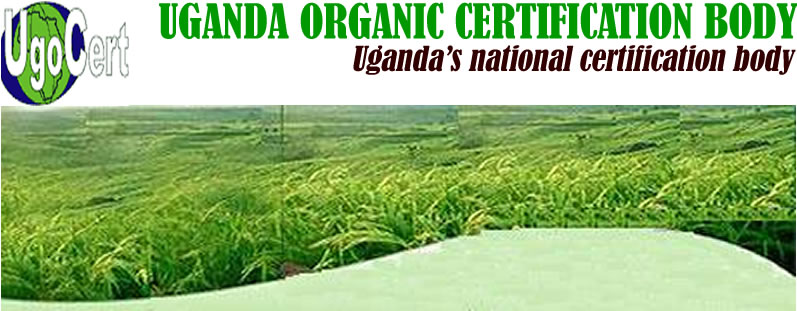Organic standards, trustworthy agriculture, sustainable agriculture, consumer trust, environmental impact, health benefits. In today’s world where consumers are becoming increasingly conscious about the food they consume and its impact on their health and the environment, organic standards play a crucial role in ensuring trustworthy and sustainable agriculture practices. These standards not only provide a framework for farmers to follow but also instill confidence in consumers that the products they are purchasing meet stringent criteria. One of the key aspects of organic standards is their focus on sustainable agriculture. By promoting practices such as crop rotation, natural pest control methods, and soil conservation techniques, organic farming minimizes the environmental impact of agricultural activities. This not only helps preserve biodiversity but also reduces water pollution and soil degradation. Furthermore, adhering to organic standards ensures that agricultural products are free from synthetic chemicals such as pesticides and fertilizers. This is not only beneficial for consumer health but also for the well-being of farmers who work with these substances on a daily basis. Consumer trust is another significant aspect that organic standards address. By providing clear guidelines and regulations for labeling products as “organic,” these standards prevent misleading claims and ensure transparency in the marketplace. Consumers can have peace of mind knowing that when they purchase organic products, they are supporting sustainable farming practices. Moreover, choosing organic options has been associated with numerous health benefits. Studies have shown that organically grown crops contain higher levels of essential nutrients such as vitamins and minerals compared to conventionally grown counterparts. Additionally, consuming foods free from synthetic chemicals may reduce the risk of pesticide residue exposure. In conclusion, embracing organic standards is vital for fostering trustworthy and sustainable agriculture practices. By prioritizing environmental sustainability while safeguarding consumer health through transparent labeling practices, these standards pave the way for a healthier future for both individuals and our planet as a whole.
The Role of Government Regulations in Setting Organic Standards
In today’s complex world, government regulations play a crucial role in ensuring that businesses abide by ethical practices and standards. When it comes to organic products, stringent organic standards are in place to guarantee that they are produced using sustainable agricultural methods and free from harmful chemicals.The certification process acts as a safeguard, providing consumers with the assurance that the products they purchase have met these rigorous criteria. This certification not only ensures the quality of the product but also bolsters consumer trust in the brand.Furthermore, sustainable agriculture practices have gained momentum in recent years as people become more conscious of environmental issues. By adopting sustainable farming techniques, such as crop rotation and reduced pesticide use, farmers can protect natural resources while safeguarding soil health and biodiversity.All these elements – government regulations, organic standards, certification process, consumer trust, and sustainable agriculture – converge to create an ecosystem where businesses are encouraged to prioritize responsible practices. Consumers can then make informed choices knowing that their purchases align with their values of supporting ethical and In today’s environmentally conscious world, the importance of sustainable production methods cannot be overstated. As consumers become more aware of their purchasing choices, businesses must adapt and prioritize sustainable practices to not only meet consumer demands but also contribute to a greener future. By implementing sustainable production methods, companies can minimize their impact on the environment by reducing waste, conserving resources, and ensuring the well-being of both people and the planet. These methods not only benefit the environment but also have a positive impact on brand reputation and long-term profitability. Embracing sustainability is not just a trend; it is an essential responsibility that all organizations should prioritize in order to create a better world for future generations.
Educating Consumers about the Importance of Choosing Organic Products with Genuine Certifications
In today’s world, where consumers are becoming more conscious about their health and the environment, the demand for organic products is on the rise. However, with so many options available in the market claiming to be “organic,” it can be challenging for consumers to differentiate between genuine organic products and those that are simply labeled as such without proper certification. This is where consumer education plays a crucial role. By educating consumers about the importance of choosing organic products with genuine certifications, we can empower them to make informed decisions that not only benefit their own well-being but also contribute to a sustainable future. Certified organic products undergo rigorous testing and adhere to strict standards set by reputable certifying bodies. These certifications ensure that the products are free from harmful chemicals, pesticides, and genetically modified organisms (GMOs). They also guarantee that sustainable farming practices have been followed throughout the production process. By choosing certified organic products, consumers can enjoy numerous benefits. Firstly, they can reduce their exposure to potentially harmful chemicals commonly found in conventional products. Secondly, they support environmentally friendly farming practices that promote soil health and biodiversity conservation. Additionally, consuming organic products may have positive impacts on personal health by providing higher nutrient content and reducing potential risks associated with pesticide residues. However, it is important for consumers to understand that not all “organic” claims are created equal. Genuine certifications from recognized organizations such as USDA Organic or EU Organic Logo provide assurance of authenticity and compliance with stringent standards. Educating consumers about these certifications helps them navigate through misleading marketing tactics and make choices based on reliable information.
The Challenges Facing Organic Farmers in Meeting Organic Standards
In today’s ever-evolving agricultural landscape, organic farmers play a vital role in ensuring the production of high-quality, environmentally friendly food. With rigorous organic standards in place, these dedicated individuals face unique challenges in meeting and maintaining these stringent requirements.The certification process for organic farming can be complex and time-consuming. However, with the help of AI-powered tools and writing assistants, farmers can streamline the documentation process, ensuring that their practices align with organic standards and regulatory guidelines.One of the key advantages of using AI writing assistants is their ability to provide accurate and comprehensive information on the certification process for organic farming. They can assist farmers in understanding the intricacies of meeting organic standards by providing detailed guidelines and step-by-step instructions.Moreover, AI-powered writing assistants can help farmers navigate market demands for organic products. By generating persuasive content that highlights the benefits of organically produced goods, they enable farmers to effectively convey their commitment to sustainable agriculture to potential consumers.By leveraging AI technology, organic farmers can not only overcome challenges associated with meeting strict standards but also tap into growing market demand for organic products. These innovative tools empower them to craft compelling narratives around their farming practices, establishing trust with consumers who prioritize healthier When it comes to making food choices, it is essential to consider not only our own health but also the impact of our decisions on the environment. Sustainable farming methods play a crucial role in ensuring that we have access to nutritious and ethically sourced food for generations to come.By opting for sustainable farming methods, we can significantly reduce the negative environmental effects associated with conventional agriculture. These methods prioritize soil health, biodiversity conservation, and efficient water usage. They promote practices such as organic farming, crop rotation, and integrated pest management.
The Importance of Organic Standards: Ensuring Quality, Safety, and Sustainability
In today’s world, where consumers are increasingly conscious about the products they purchase, organic standards have emerged as a benchmark for quality and safety. Embracing organic practices ensures that products meet stringent standards set by regulatory bodies, ensuring that they are free from harmful chemicals and genetically modified organisms.Moreover, the emphasis on sustainability has also become paramount. By adhering to organic standards, businesses contribute to the preservation of biodiversity and protect ecosystems. This not only benefits our environment but also helps in maintaining a healthy balance between nature and agriculture.One of the key advantages of meeting organic standards is gaining consumer trust. Consumers are more likely to choose products that carry an organic certification as it reassures them about the product’s origin, production methods, and overall integrity. This trust ultimately leads to increased sales and customer loyalty.In addition to consumer trust, businesses should also consider the significant environmental impact that comes with adopting organic practices. By reducing dependency on chemical fertilizers and pesticides, companies can contribute towards mitigating water pollution, soil degradation, and overall environmental degradation caused by conventional farming methods.Therefore, it is crucial for businesses to recognize the importance of embracing organic standards not only for their own benefit but also for the greater good of society. By doing so, they can ensure superior product quality while safeguarding human health and In this rapidly evolving world, it is of utmost importance to prioritize the preservation of our precious planet for the betterment of future generations. Our actions today will shape the world that our children and grandchildren inherit, and it is our responsibility to ensure that they inherit a planet that is thriving, sustainable, and full of opportunities.By actively engaging in sustainable practices such as reducing our carbon footprint, conserving natural resources, and promoting renewable energy sources, we can contribute to a greener future. It is vital to recognize that every small step we take towards environmental stewardship is a meaningful contribution towards safeguarding the well-being of our planet for generations to come.
- The Importance of Maintaining a Healthy and Balanced Ecosystem: How it Benefits Us and the EnvironmentIntroduction: Understanding the Significance of a Healthy and Balanced Ecosystem Imagine a world where nature thrives in perfect harmony, where every living organism plays a vital role in maintaining the delicate balance of our planet. This is the power of a healthy ecosystem. Ecosystems are not only beautiful and awe-inspiring, but they also serve as… Read more: The Importance of Maintaining a Healthy and Balanced Ecosystem: How it Benefits Us and the Environment
- The Importance of Embracing Environmentally Sustainable Practices for a Greener Futureenvironmentally sustainable practices, greener future, climate change, renewable energy, reduce carbon footprint, eco-friendly alternatives. In today’s world, the importance of embracing environmentally sustainable practices cannot be overstated. With the growing concern over climate change and its impact on our planet, it is crucial that we take proactive steps towards creating a greener future. One of… Read more: The Importance of Embracing Environmentally Sustainable Practices for a Greener Future
- Learn How to Check for Soil Health Issues and Improve Your Garden’s ProductivityIntroduction: The Importance of Soil Health and Its Impact on Plant Growth Ensuring soil health is crucial for optimal plant growth and garden productivity. The quality of soil directly impacts the nutrients available to plants, their ability to absorb water, and overall resilience against pests and diseases. By prioritizing soil health, gardeners can create thriving… Read more: Learn How to Check for Soil Health Issues and Improve Your Garden’s Productivity
- The Latest Developments Elsewhere: Exploring the Exciting Advancements in Various FieldsThe world we live in is constantly evolving and progressing at an unprecedented pace. In every corner of the globe, remarkable advancements are being made across a multitude of fields. From science and technology to medicine and beyond, the latest developments are shaping the way we live, work, and interact with the world around us.… Read more: The Latest Developments Elsewhere: Exploring the Exciting Advancements in Various Fields
- The Importance of Soil Health and Nutrient Management: Enhancing Crop Productivity and Sustainable AgricultureIntroduction: Understanding the Vital Role of Soil Health in Agriculture In today’s rapidly changing world, the importance of soil health and sustainable agriculture practices cannot be overstated. As farmers and agricultural professionals strive to maximize crop productivity while minimizing environmental impact, the management of soil nutrients and fertility plays a crucial role. One key aspect… Read more: The Importance of Soil Health and Nutrient Management: Enhancing Crop Productivity and Sustainable Agriculture
- The Importance of Organic Standards: Ensuring Trustworthy and Sustainable AgricultureOrganic standards, trustworthy agriculture, sustainable agriculture, consumer trust, environmental impact, health benefits. In today’s world where consumers are becoming increasingly conscious about the food they consume and its impact on their health and the environment, organic standards play a crucial role in ensuring trustworthy and sustainable agriculture practices. These standards not only provide a framework… Read more: The Importance of Organic Standards: Ensuring Trustworthy and Sustainable Agriculture
- Unlocking the Secrets: How to Increase the Yield of Organic Agricultural ProductsIntroduction: The Growing Demand for Organic Agricultural Products The demand for organic agricultural products has been steadily increasing in recent years. As consumers become more health-conscious and environmentally aware, they are seeking out food that is grown without the use of synthetic pesticides, fertilizers, and genetically modified organisms (GMOs). This growing demand for organic products… Read more: Unlocking the Secrets: How to Increase the Yield of Organic Agricultural Products
- Unlocking Opportunities: The Power of International Conferences in Driving Global Collaboration and InnovationIn today’s interconnected world, international conferences have emerged as powerful platforms for driving global collaboration and innovation. These gatherings bring together experts, thought leaders, and professionals from various industries and countries, creating a unique opportunity for knowledge sharing, networking, and forging partnerships. International conferences have become powerful platforms for driving global collaboration and innovation. These… Read more: Unlocking Opportunities: The Power of International Conferences in Driving Global Collaboration and Innovation
- The Top 7 Best Ways To Raise Organic Livestock In A Healthy MannerOrganic Livestock Must Be Raised With Proper Care Organic livestock must be raised in a proper manner.This is an introduction to the topic of organic livestock farming. It is divided into three sections:Organic livestock must be raised in a proper manner. This is because organic livestock will promote the health of the soil and other… Read more: The Top 7 Best Ways To Raise Organic Livestock In A Healthy Manner






